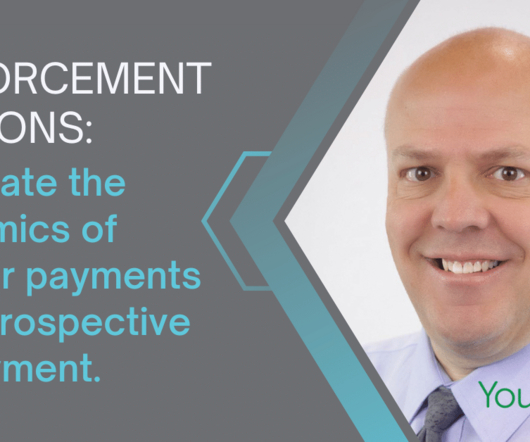The Final Rule: How to Prevent $389,000 in Medicare Overpayments
Healthicity
FEBRUARY 8, 2022
New York Hospital to Pay $389,000 to Medicare. In a recent audit of a New York hospital, the HHS OIG identified overpayments.

Healthicity
FEBRUARY 8, 2022
New York Hospital to Pay $389,000 to Medicare. In a recent audit of a New York hospital, the HHS OIG identified overpayments.

Healthicity
MARCH 4, 2022
The OIG continues to perform focused audits on hospital claims using billing data from thousands of hospitals.
This site is protected by reCAPTCHA and the Google Privacy Policy and Terms of Service apply.

HIT Consultant
SEPTEMBER 27, 2024
Risk adjustment requires constant attention to ensure accurate coding, timely regulatory compliance, and streamlined communications across the payer-provider continuum. billion in overpayments to MA plans with this new audit methodology over the next ten years. million in overpayments to just one plan over the course of two years.

Healthicity
NOVEMBER 29, 2022
Health and Human Services Office of Inspector General (OIG) recently issued a report concluding that Medicare and patients combined overpaid more than a million dollars for the same professional services provided at critical access hospitals (CAH). Who Bills for Professional Services?

Healthcare Law Blog
FEBRUARY 3, 2023
New Subpart 521-1: Compliance Programs The adopted regulations represent substantial changes to 18 N.Y.C.R.R. Part 521 governing the implementation and operation of effective compliance programs for certain “required providers,” including, now for the first time, Medicaid managed care organizations (MMCOs). [1]

YouCompli
FEBRUARY 22, 2023
Raising prices on your hospital’s chargemaster can also raise your level of compliance grief. It is “prospective” because hospitals and other providers know ahead of time what they will be reimbursed. The CCR is determined by a hospital’s cost report that is reconciled with the local Medicare contractor.

Healthcare IT News - Telehealth
JUNE 8, 2022
But even now, hospitals and health systems should be preparing proactively to meet the regulatory demands of a post-PHE future. based attorney in the health law practice of Baker, Donelson, Bearman, Caldwell & Berkowitz about what providers should be doing to ensure compliance when the PHE finally sunsets. Cohen, a Washington, D.C.-based
Let's personalize your content